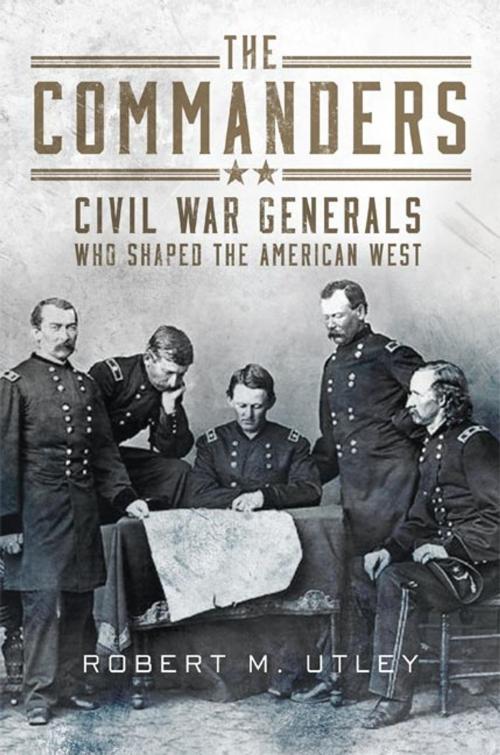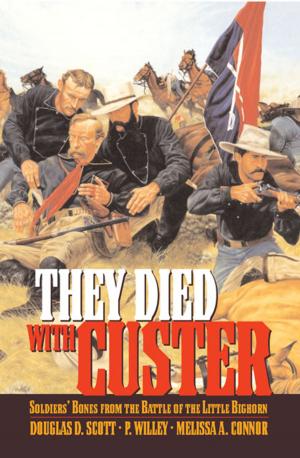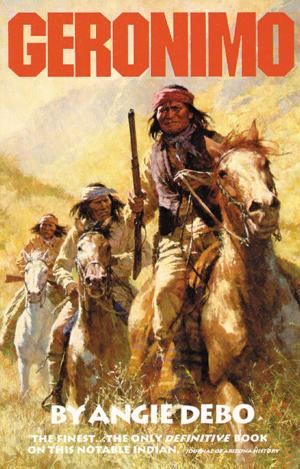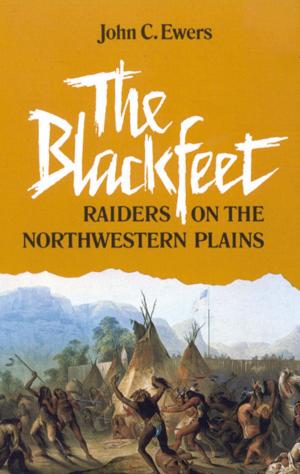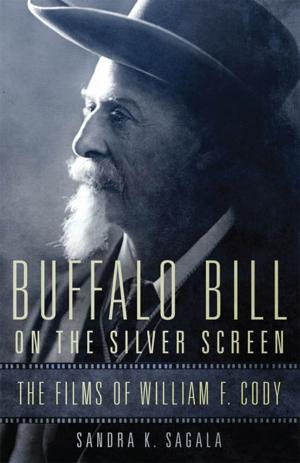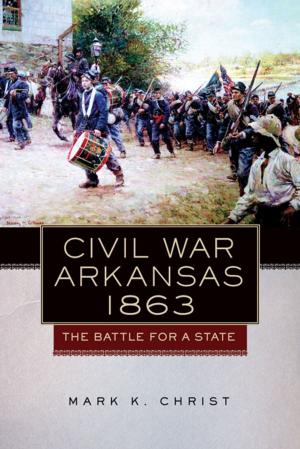The Commanders
Civil War Generals Who Shaped the American West
Nonfiction, History, Americas, United States, Civil War Period (1850-1877), 19th Century, Biography & Memoir, Historical| Author: | Robert M. Utley | ISBN: | 9780806160917 |
| Publisher: | University of Oklahoma Press | Publication: | February 1, 2018 |
| Imprint: | University of Oklahoma Press | Language: | English |
| Author: | Robert M. Utley |
| ISBN: | 9780806160917 |
| Publisher: | University of Oklahoma Press |
| Publication: | February 1, 2018 |
| Imprint: | University of Oklahoma Press |
| Language: | English |
Taking a novel approach to the military history of the post–Civil War West, distinguished historian Robert M. Utley examines the careers of seven military leaders who served as major generals for the Union in the Civil War, then as brigadier generals in command of the U.S. Army’s western departments. By examining both periods in their careers, Utley makes a unique contribution in delineating these commanders’ strengths and weaknesses.
While some of the book’s subjects—notably Generals George Crook and Nelson A. Miles—are well known, most are no longer widely remembered. Yet their actions were critical in the expansion of federal control in the West. The commanders effected the final subjugation of American Indian tribal groups, exercising direct oversight of troops in the field as they fought the wars that would bring Indians under military and government control. After introducing readers to postwar army doctrine, organization, and administration, Utley takes each general in turn, describing his background, personality, eccentricities, and command style and presenting the rudiments of the campaigns he prosecuted. Crook embodied the ideal field general, personally leading his troops in their operations, though with varying success. Christopher C. Augur and John Pope, in contrast, preferred to command from their desks in department headquarters, an approach that led both of them to victory on the battlefield. And Miles, while perhaps the frontier army’s most detestable officer, was also its most successful in the field.
Rounding out the book with an objective comparison of all eight generals’ performance records, Utley offers keen insights into their influence on the U.S. military as an institution and on the development of the American West.
Taking a novel approach to the military history of the post–Civil War West, distinguished historian Robert M. Utley examines the careers of seven military leaders who served as major generals for the Union in the Civil War, then as brigadier generals in command of the U.S. Army’s western departments. By examining both periods in their careers, Utley makes a unique contribution in delineating these commanders’ strengths and weaknesses.
While some of the book’s subjects—notably Generals George Crook and Nelson A. Miles—are well known, most are no longer widely remembered. Yet their actions were critical in the expansion of federal control in the West. The commanders effected the final subjugation of American Indian tribal groups, exercising direct oversight of troops in the field as they fought the wars that would bring Indians under military and government control. After introducing readers to postwar army doctrine, organization, and administration, Utley takes each general in turn, describing his background, personality, eccentricities, and command style and presenting the rudiments of the campaigns he prosecuted. Crook embodied the ideal field general, personally leading his troops in their operations, though with varying success. Christopher C. Augur and John Pope, in contrast, preferred to command from their desks in department headquarters, an approach that led both of them to victory on the battlefield. And Miles, while perhaps the frontier army’s most detestable officer, was also its most successful in the field.
Rounding out the book with an objective comparison of all eight generals’ performance records, Utley offers keen insights into their influence on the U.S. military as an institution and on the development of the American West.
